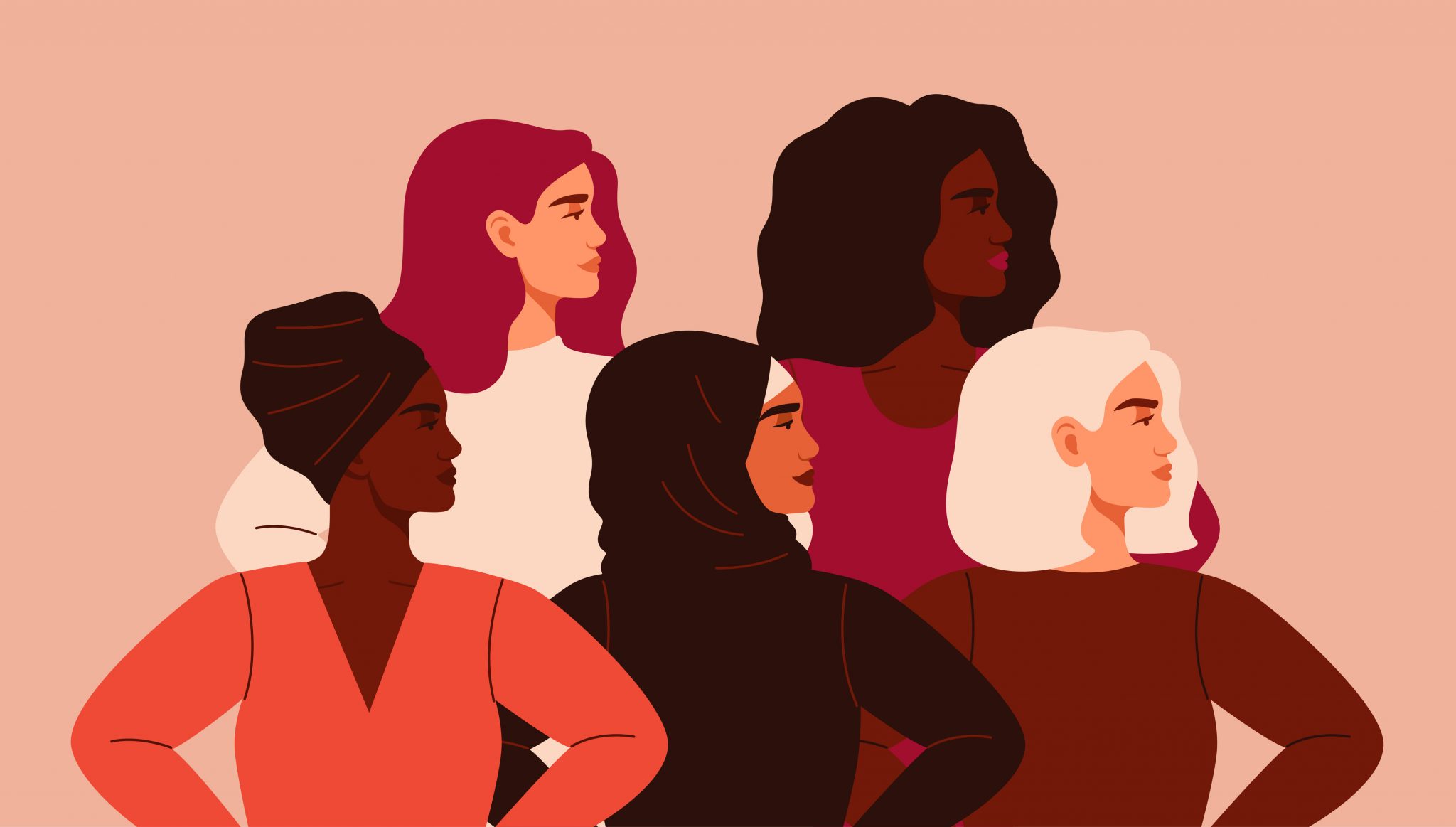Women in business: the founders, investors and mentors changing the face of the food and drink industry

Launching a successful business in the food and drinks industry as a woman has never been easy. Like most sectors, the market has always been dominated by men, making it more challenging for women to make their mark. But this doesn’t mean they haven’t been active.
Some very influential food and drink products have been invented by women. In 1843, Nancy Maria Donaldson Johnson received the US patent for her hand-cranked ice cream churn, which reduced the amount of time needed to make the product and simplified the production process. In 1951, Rose Totino co-founded the first frozen pizza business, Totino, at a pizzeria in Minneapolis, Minnesota, and fellow American Ruane Sharon Jeter is known for being awarded the patent for developing the first lever-less toaster in 1987. A more recent invention from 1999 was the now popular Hendrick’s Gin brand, founded by one of William Grant & Sons’ master distillers, Lesley Gracie, who helped to kickstart a gin renaissance in the UK.
Gender equality
In the present day, more women are being encouraged by food and drinks giants to enter entrepreneurial and senior roles in the industry, with efforts being made by several corporations to increase these numbers. Last year, Nestlé was recognised in Bloomberg’s 2021 Gender Equality Index, for transparent gender reporting as well as active efforts to improve equality in the workplace. In 2008, they made Gender Balance a key priority to address, and through their Acceleration Plan, they aim to increase the number of women in the top 200 senior executive positions by the end of 2022, increasing it from 20 to 30%. Other major food and drinks companies featured in the 2021 Bloomberg list include AB InBev, Danone, Unilever and Ingredion Incorporated, who have all chosen to commit to the fifth UN Sustainable Development Goal, which targets achieving gender equality and empowering all women and girls by 2030.
Female-founded companies
Within the last decade there has been a surge in successful, innovative start-ups launched by women, tackling issues such as health, sustainability and representation through food and drink. One example is the healthier popcorn and crisps brand PROPER Snacks, co-launched by Cassandra Stavrou in 2011. The products have become a hit since they arrived on the market, and now sit on the shelves of most grocery stores around the UK. Stavrou has received an MBE for her services to international trade with both brands. and she has also recently become a regular angel investor, contributing to the $38M Series B round for vegan company AllPlants, and a $2M Seed round of funding for Zyper, a marketing platform which links brands together with their fans.
Another popular company is the Denmark-based Too Good to Go app which tackles food waste by connecting customers to restaurants and cafes that have leftover goods that would otherwise go to waste. The company was first co-launched in the UK in 2016 by Lucie Basch and has now become a successful food franchise. Furthermore, Too Good to Go’s CEO is also a woman, Mette Lykke.
One of Israel’s most successful sustainable packaging brands, TIPA, also has a female founder, Daphna Nissenbaum. TIPA is one of the winners of the Foodtech 500 2021 list of most notable start-ups. The company creates premium quality compostable and flexible packaging solutions for the food and drinks industry and the fashion world.
Coolhaus is another brand that has boomed in the US ice cream scene recently. Created by LGBTQ+ couple Natasha Case and Freya Estreller, the company produces a line of dairy and dairy-free ice cream desserts aimed at millennials, women, and the LGBTQ+ community. Their products range from ice cream sandwiches to tubs in a range of flavours such as carrot cake, strawberry cheesecake, coffee, churro dough and molten chocolate. The start-up is now in the process of being acquired by a subsidiary of the vegan brand Perfect Day, which will make all Coolhaus products completely dairy-free.
Women are certainly driving innovation in the plant-based sector. The first vegan egg is being launched by two women in France this year. Le Papondu, is a Parisian start-up, founded by industrial biologists Philippine Soulères and Sheryline Thavisouk. Their plant-based egg, which comes in liquid form in a plastic shell – just like a hen’s egg (except the plastic of course) – can be separated into a white and a yolk, and can be used to make fried or scrambled eggs, omelettes, in baking and in other recipes. They intend to develop an eco-friendly alternative to the plastic shell in advance of their launch of the product in restaurants across the country, which is expected to be later in 2022.
Despite driving innovation in the F&B sector, women still experience barriers and difficulties when it comes to founding their businesses, and still a very small number are achieving senior level roles in the industry. A 2017 Women in the Workplace report from management consulting firm McKinsey shows that the number of women in C-suite executive roles across the sector was only at 23%. The 2019 report shows only 16% of women were in leadership roles. According to the latest edition of the report showing data from 2020, this number did increase, but only to 20%, with the pandemic being cited as having a negative impact on advancing gender equality in the sector. The latest report also noted that during Covid, women of colour were more likely to lose their jobs, while women overall were 1.3 times more likely than men to think about leaving their jobs. “The biggest challenge, I think for us was probably being taken as seriously as our male colleagues,” says Raissa de Haas, who co-founded the premium mixer brand Double Dutch with her twin sister Joyce in the UK in 2015. “I think, getting that credibility was hard, especially because when we started, we were in our early 20s, we were female, and I think that was definitely a big factor contributing to us not being taken seriously.”
Other difficulties include battling a lack of confidence, according to Sammi Gascoyne, founder of the cake company Blushing Cook: “I would say that being able to make your own decisions was a big challenge for me. I think as women we second guess ourselves quite a lot and guys tend to be able to cover that up a lot more.
“I always wanted to have the ability to create my own ideas, but to be making decisions, and being the person that has to have the final say, it’s quite scary being the one that does that.”
Investing in women
Another major challenge for women in business face is access to funding. A recent report published in 2021 by the Vegan Women Summit revealed that 60% of women entrepreneurs working in the plant-based and alternative meats sector experienced bias when it came to fundraising, while half of them reported they had ended a business relationship due to experiencing gender discrimination or harassment. Women of colour founders were also said to be 1.5 times more likely to witness discrimination or harassment than their white counterparts.
In the US, female businesswomen starting their own companies were recorded to have received a measly 2% of all venture funding in 2017. In Europe the situation is starkly similar, says Fabiola Hochkircken, Co-Founder of the female-led and female-focused Auxxo Catalyst Investment Fund: “Female founded businesses are generally under-invested. In Germany, it’s only 2% of money that goes to female founders.”
Creator of the dairy-free luxury ice cream brand Mama Dolce, Jane Visram, also witnessed these fundraising challenges first-hand when she launched her business. “Finding the funding and the opportunity to scale has not been easy,” she told Food Matters Live. “It would be refreshing to see the playing field levelled when it comes to women seeking funding as this is the only way to introduce diversity of thought into the food and beverage industry at a senior level.”
Women are struggling to reach their potential in the agrifood start-ups sector too. According to the Female Agrifood Tech Entrepreneurs report released by EIT Food in 2021, women tend to be the main buyers of food globally which arguably makes them more aware of food and agricultural issues at stake. Despite this fact, the report highlights that female-founded start-ups received 7% of all deal activity and 3% in investments in 2018, while women received 2.2% of all capital injected into European VC-supported start-ups in 2020.
A study published by The Academy of Management Journal in 2018 shows that one major reason why women have struggled to access funds in the past is that they are being asked different questions to their male counterparts. As a result of this approach from investors, male-founded start-ups received five times more in investment than female-led start-ups. Finding this study was one major factor influencing the creation of Auxxo, says Fabiola: “A lot of it has to do with the fact that investors ask different questions. The female founded team got asked risk-driven questions, and the male team got asked opportunity-driven questions. The study then analysed the outcome of having two male teams present the same pitch, and then investors asking risk and opportunity-driven questions. So, they found there was this bias already on the investors’ side.”
Another barrier to accessing funding noted in the EIT report, was women’s approach to pitching, which is described as “more cautious or conservative”, as they tend to ask for smaller amounts of money than men. This approach shouldn’t be tainted as a bad thing says Fabiola: “A lot of male-dominated funds say that women pitch differently, and they should pitch more aggressively. But as female investors, we like the fact that the women are more down to earth and talk more in numbers and have proven their business model more at an early stage. We like this and we think we can use this to our advantage.”
Like Fabiola, Raissa believes being different can allow women in business to grasp greater opportunities than men in the long run: “We did stand out more than our male competitors when launching our product, and I think being slightly more of a minority does kind of help you be more memorable to potential customers.”
Arguably, one of the reasons why women receive fewer investments is that there isn’t nearly the same number of women investors as male investors in the sector, and with such lack of representation comes a lack of investment in female-founded companies. The good news is that the number of women-led investment firms is increasing. Some big players investing in innovation in the food and drinks sector include Matilda Ho, the founder and managing director of China’s first food tech accelerator, Bits x Bites, which supports companies working in the alternative proteins and plant-based sector and Mila Valcarcel co-Founder of Eatable Adventures, investing in foodtech innovation in Europe. With a community of over 2500 entrepreneurs and founders, the VC claims to be Europe’s first early-stage investment food investment network to recognise the significant impact new technology is having on the food and drinks market, as well as how tech can be used to improve the food of the future. E²JDJ is another up and coming VC with a female co-founder, Stephanie Dorsey. Based in the US, the VC funds international start-ups that are disrupting the sector with innovative science and technology to create more sustainable food systems worldwide. Another major player in the food and drink investing sector is Edible Planet Ventures (EPV), which promotes, consults, and invests in start-ups looking to rebuild the food system. Established by its CEO, Sharon Cittone, the company believes it is vital to invest in in women-led companies. “I like to recognise merit and I think there are some formidable women founders out there,” she says. “EPV does make a point to support women, because we need to learn to ask for what they’re worth a lot more and unfortunately statistically they still raise less than men.” Sharon is also the Global Chair for food innovation at G100 Mission Million, an initiative which works with global institutions to change policies and achieve both gender equality and diversity and inclusion by 2030.
Mentorship programmes
As the number of female-founded start-ups in the food and drinks industry increases, so does the level of support available too. “I think there is definitely more support for female founders,” says Raissa. “Especially over the past few years, with incentives like International Women’s Day, which has become such a big thing for about two years. I think there’s really such positive momentum.” Some of these support groups include mentorship programmes that are specifically directed at women, or that offer help to underrepresented female minority groups. In the UK there are several nationwide programmes, such as NatWest’s Be The Business Rose Review Female Entrepreneurs Mentoring Programme, targeted at female business owners, as well as Santander’s Breakthrough Women Business Leaders Mentoring Programme.
UK-based Equal Measures, was founded in 2020 by Deano Moncreiffe to change conversations about ethnicity as well as LGBTQ+ and other underrepresented backgrounds in the drinks industry, and to help those from marginalised backgrounds access careers in this sector. The organisation is partnered with the national Drinks Trust, as well as a range of mentors working within in the industry, including Hannah Lanfear who runs The Mixing Class programme. The educational mentorship project connects mentors to young, marginalised Londoners looking to work in the cocktail industry. The programme also helps them gain the necessary qualifications they need to succeed in the drinks sector such as the WSET courses.
Mentorship for women in the F&B industry is prominent in the rest of Europe too. The EIT Food Empowering Women in Agrifood project offers 80 female entrepreneurs from Regional Innovation Scheme countries including Bulgaria, Greece, Lithuania, Poland, Portugal, Romania, Spain or Turkey, the chance to take part in a six-month entrepreneurial programme to develop new innovative solutions to address issues in the agrifood sector.
Global initiatives have also been launched, such as the six-week Women Feeding the Future Program, spearheaded by the World Woman Foundation. Each program cycle typically receives between 300 to 400 applicants, and 50 are selected to develop solutions for challenges in the food industry that relate to distribution, technology, sustainability, and production. “Our goal is to increase women’s STEM participation, particularly in food science and agriculture,” says Rupa Dash, who established of the Woman World Foundation. “The program is committed to expanding the role of women in ending hunger, increasing the nutrition index, accelerating innovation in the food industry, and compounding a positive impact of women for a better economy and better planet.”
Another prominent network is Meat Business Women, a global professional community for women working in the meat industry. The organisation was founded by Laura Ryan and Pamela Brook in 2015. They created the group after working in the sector for over a decade and being shocked by the lack of representation of female workers, especially at board level. According to a report published in 2020 by the group, 36% of people working in the meat industry are women, but only 5% are in a chief executive position.
“Our community exists to ensure that women who work in the meat industry feel represented, supported and have the skills they need to climb the career ladder and reach their goals,” says Rebecca Fearon, Membership Marketing Manager at Meat Business Women. “Our members gain access to a global mentoring scheme, giving them one-to-one coaching from people across the entire global meat network. Members also benefit from monthly personal development masterclasses, covering topics such as leadership, negotiation skills, enhancing their networking skills, self-promotion, PR and more.”
Like Raissa, Sharon also believes in the power of mentorship groups: “I am a big believer in networks – our relationships are the key to achieving our goals”, she says. She stresses however that “To truly change we need to transform a mentality that has been there for centuries and that is no easy task.”
While there is no doubt that women entrepreneurs experience difficulties in the food and drink industry, The Female Agrifood Tech Entrepreneurs report from EIT food showed that female-led digital start-ups were more likely to succeed overall compared to those owned by men. Furthermore, the EIT research shows that any investment used by a female founded company was 63% more likely to perform well than in a male-founded agrifood business, with every $1 raised by a female-led start-up creating $0.78 in revenue in comparison to $0.31 produced by male-led businesses.
Despite the range of challenges that women in business face, female-led start-ups are nonetheless claiming their own space in the industry, and this is set to continue for years to come. With the number of successful brands, female investors and women-focused support increasing, it is clear that women will be key drivers of change and inspire future generations of girls looking to make a difference in the world through food and drink.








